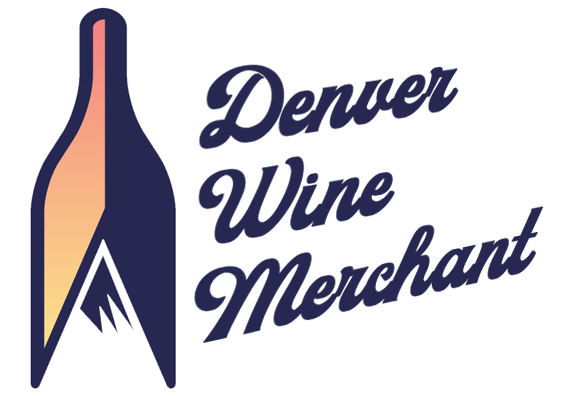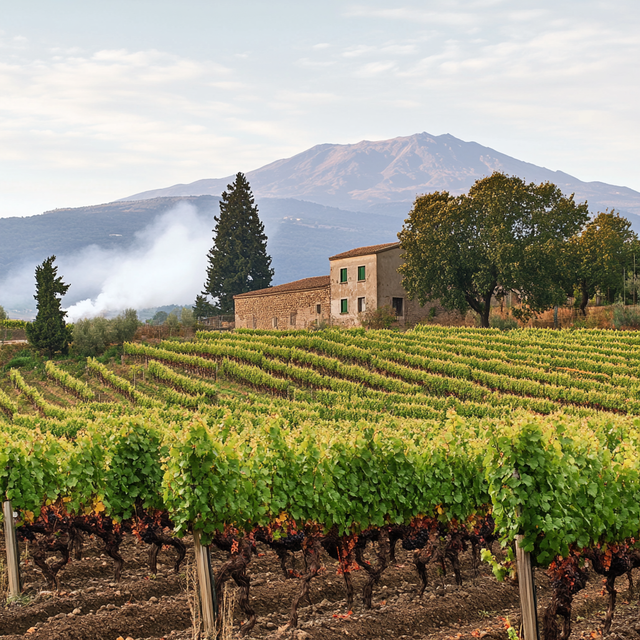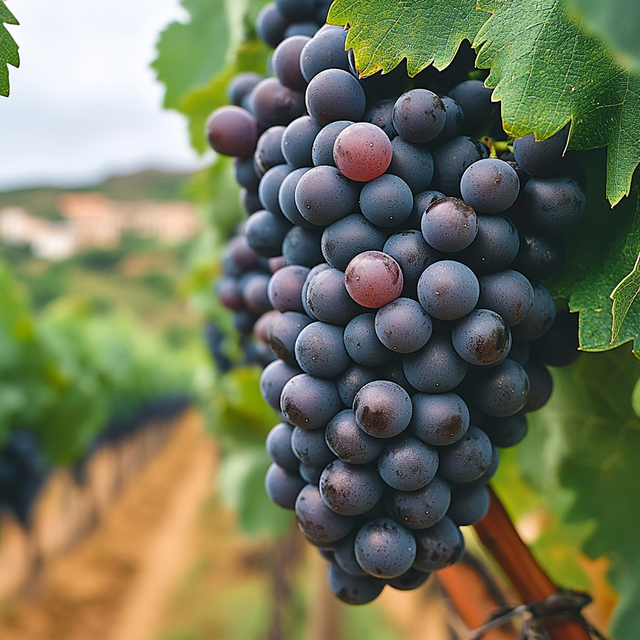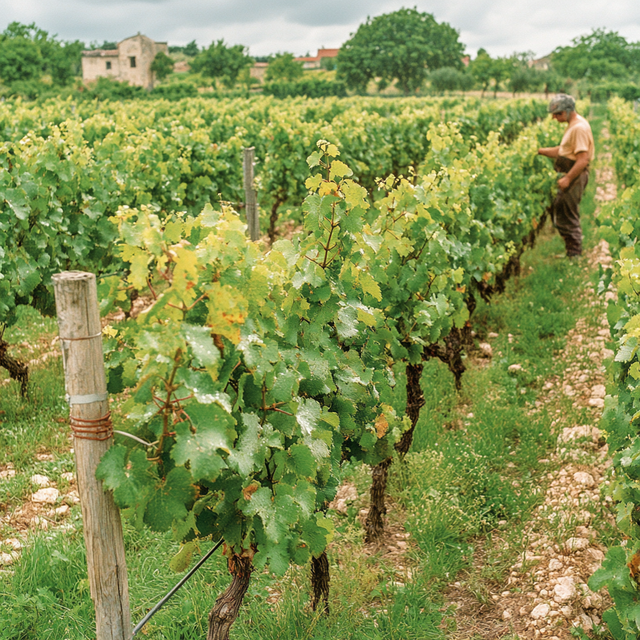Sicily, Italy’s largest island, blends ancient wine traditions with a fresh wave of modern creativity. Its star red grape, Nero d’Avola, thrives in the island’s warm, sun-soaked climate, producing intensely flavored wines with dark fruit and a hint of savory spice. Along the western coast lies the historic heartland of Marsala, a fortified wine prized for both sweet and dry styles. Rising above the island’s varied landscapes is Mount Etna, an active volcano whose mineral-rich soils and cooler elevations result in elegantly structured reds and nuanced whites. From coast to crater, Sicily’s wine culture is as diverse and vibrant as the region itself.
Italy - Sicily
Nero d'Avola is Sicily's most widely planted grape, originally grown near the town of Avola in the island's southeast. It thrives in Sicily’s warm Mediterranean climate and sandy limestone soils, producing medium to full-bodied red wines. Typically, Nero d'Avola offers flavors of ripe blackberry and plum with hints of spice. The wines have balanced acidity and a solid structure, making them enjoyable young or aged for a few years. Though closely linked to Sicily, Nero d'Avola is also increasingly popular in warm climates like Australia and California.
Nero d'Avola
Practicing Organic vineyard farming involves growing grapes using organic methods—avoiding synthetic fertilizers, herbicides, pesticides, and fungicides—but without formal certification. Wineries adopting this approach prioritize environmental health, soil vitality, and biodiversity, using natural practices such as composting, cover cropping, and manual pest control. Many small wineries opt for practicing organic methods rather than pursuing official organic certification, primarily due to the significant cost, paperwork, and time commitment involved in certification processes. As a result, practicing organic is a popular choice among boutique and artisanal producers who remain committed to sustainable agriculture while managing budgetary constraints.





